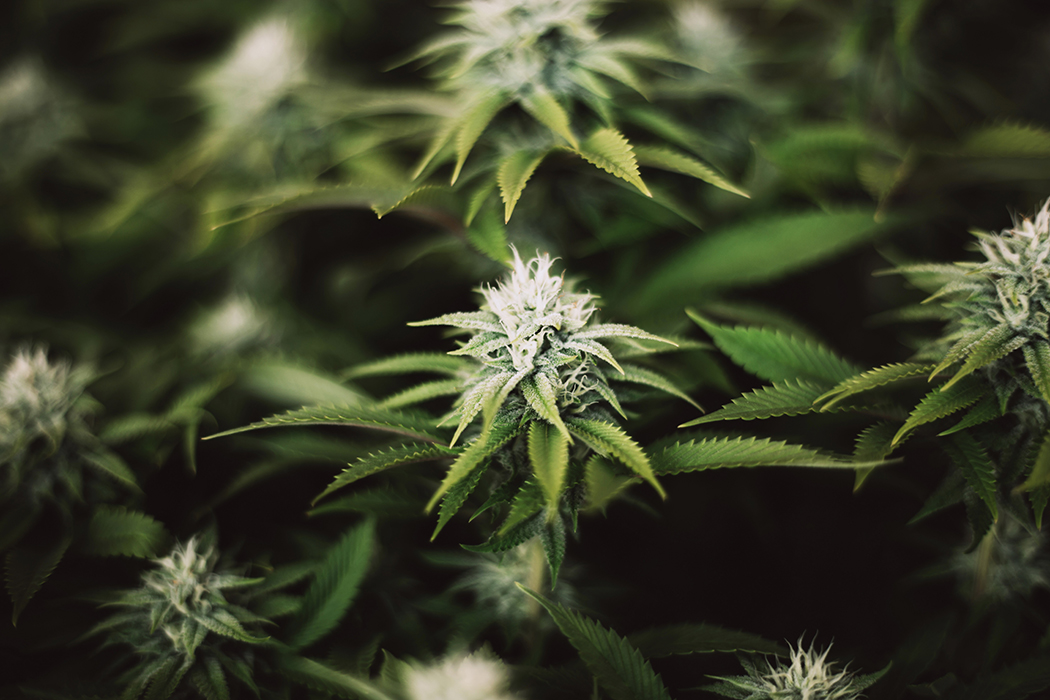Get your bongs, blunts, and bowls ready—starting July 1, everyone 21 and over can legally possess and use marijuana recreationally in Virginia. Adults will be able to possess up to one ounce of marijuana and grow up to four marijuana plants at home, as long as they keep them out of public view and away from children. However, the new law is full of caveats, and may not be so easy to follow.
Here, Chelsea Higgs Wise, executive director of Marijuana Justice, a Richmond-based group fighting for equitable legalization, walks us through the dos and don’ts of Virginia marijuana use.
Can I buy marijuana legally?
Not yet. Until January 1, 2024, it will remain illegal to sell marijuana seeds, clones, flower, or any other part of the plant in Virginia, outside of the state’s medical marijuana program. And it is against federal law to bring home marijuana from other states where it is legally sold.
Adults may share up to an ounce of marijuana with each other, but not in exchange for money, goods, or services. They also cannot provide free “gifts” of weed with legal items, like the gifting market in Washington, D.C. The immediate effect of this law isn’t to create a legal marijuana market, but rather to decrease the amount of marijuana arrests by eliminating possession as a crime.
Where am I allowed to smoke?
Consumption of marijuana in public spaces, moving vehicles, and on school grounds will remain illegal. Those traveling with marijuana are urged to keep it in a sealed container inside their trunk or glove compartment. While police are no longer able to use the smell of marijuana as a reason to search a vehicle, “[they] are able to now say they see a green leafy substance in your car and are able to search it,” says Higgs Wise. “Don’t give them a reason to search your car.”
If you’re a renter, you might not be allowed to smoke in your apartment, either. “Please review your leases,” says Higgs Wise. “A lot of private landlords are able to say you cannot consume drugs, because they are outlawed at a federal level.”
Is my previous marijuana arrest gone?
Maybe. On July 1, Virginia will automatically seal all records of misdemeanor possession with intent to distribute marijuana, including arrests, charges, and convictions. (All records of misdemeanor simple possession were sealed when Virginia decriminalized marijuana last year.)
By 2025, the state plans to have all records of simple possession or misdemeanor possession with the intent to distribute sealed as well. People with other marijuana-related misdemeanors or (most) felonies will be able to petition for their records to be sealed.
What are the next steps for marijuana reform in Virginia?
In the near future, Marijuana Justice hopes to see many improvements made to legalization laws. The advocates are particularly worried about how new laws will impact youth under 21, public housing residents, and unhoused people, who could face a list of fines, misdemeanors, and other penalties for using marijuana.
“We’ve seen an uptick in youth enforcement as states have legalized…though there is no evidence there is an increase in youth consumption of marijuana because a state has legalized,” says Higgs Wise. “We would love to have a bill for state [college] campuses to remove any zero tolerance policies around marijuana,” which fuel the school-to-prison pipeline.
Additionally, since there currently is no legal way to purchase recreational weed, advocates are concerned about what law enforcement will consider an “open container” of marijuana in public places and during traffic stops. In places where weed is legal, a “closed container” is typically a sealed manufacturer’s container, which Virginians do not yet have access to.
“This is why our main demand to legislators is to repeal the criminal enforcement…and look into how to create more of a legal and health system around the plant,” says Higgs Wise. “There’s no way to equitably or fairly enforce any of these laws, when we have seen marijuana enforcement disproportionately impact Black people.”
“If we want to commit to not repeating our past harms, we need to not put money towards continued enforcement,” adds Higgs Wise, pointing to the extra funding given to police for traffic enforcement within the new laws.
And more must be done to repair the harm caused by the decades-long war on drugs, specifically within Black and brown communities, Higgs Wise emphasizes.
“What we have to decide next is where the millions of dollars in tax revenue that Virginia will earn go,” she adds. “Will Virginia be the first state to make direct payments to people that have arrests and charges [due] to marijuana?”
